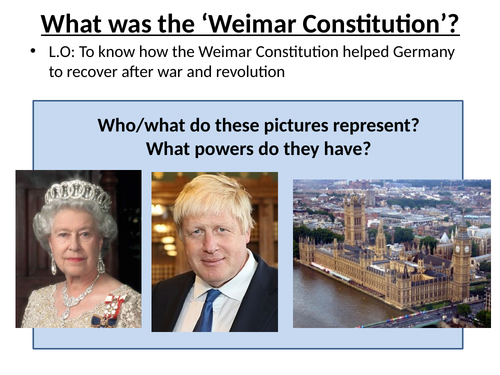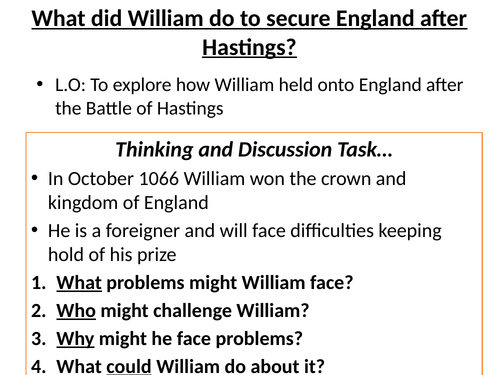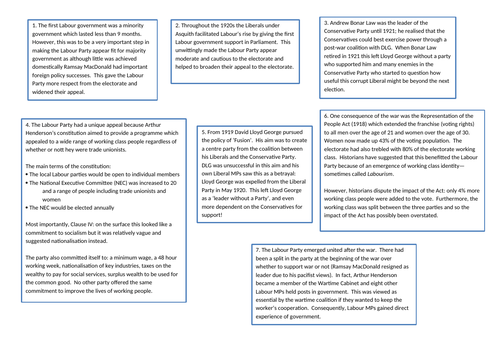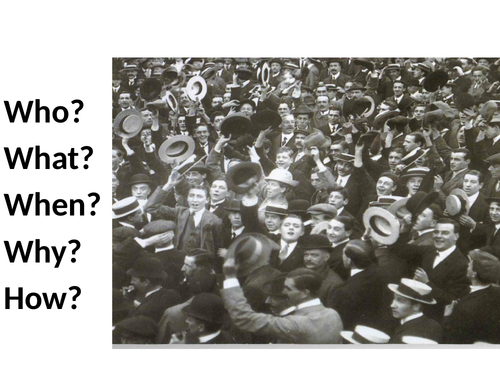
15Uploads
1k+Views
592Downloads
All resources

GCSE: Impact of WW1 on Germany
This lesson explores the impact of the First World War on Germany. It has been designed specifically to be used for EDEXCEL’s Weimar and Nazi Germany 9-1 GCSE, but it can be adapted as necessary.
Features:
The lesson is framed around analysis how useful a source is
The investigation then uses source materials to explore the impacts of the war on Germany
There is a section where teachers can discuss the Stab in the Back Theory, important for explaining why the Germans didn’t think they actually lost the war
Finally, the students need to apply their knowledge to analyse how representative (and therefore useful) the original source is.

GCSE: Anglo-Saxon hierarchy
A card-sort activity to get your students thinking about who was in Anglo-Saxon England, what they did, and who held power.

GCSE: Who were the Anglo-Saxons?
An activity to help introduce the Anglo-Saxons to willing GCSE students!
Best ran as a paired research activity where students work together to gather knoweldge about aspects of life in Anglo-Saxon England.
Useful for developing select and deployment of knowledge, as well as a wider discussion about sources and interpretations.

Key Words for Medicine
These comprehensive lists will give your students all the important key words necessary for the Medicine Through Time units for all GCSE exam boards.
The lists can be printed out one time period at a time, or collated into a double-sided booklet with a cover.
The lists have three columns: the first for the key word (which has been written in case sensitive English to help support good writing); the second has room for a definition; the third allows students to reference the lesson date and title in order to fully index their words.
A ‘Full Licence Version’ that can be edited is also available.

Key Words for Germany
These comprehensive lists will give your students all the important key words necessary for the Weimar and Nazi Germany (1918-38) units for all GCSE exam boards.
Lists include:
Key concepts
Key individuals
The Weimar Republic
Hitler’s rise to power
Nazi control and dictatorship
Life in Nazi Germany
The lists can be printed out one topic at a time, or collated into a double-sided booklet with a cover.
The lists have three columns: the first for the key word (which has been written in case sensitive English to help support good writing); the second has room for a definition; the third allows students to reference the lesson date and title in order to fully index their words.
A ‘Full Licence Version’ that can be edited is also available.

Key Words for the Cold War
These comprehensive lists will give your students all the important key words necessary for the Superpower Relations/Cold War units for all GCSE exam boards.
The lists include:
The origins of the Cold War
The crises of the Cold War (e.g. Hungarian Uprising; Cuban Missile Crisis etc)
The end of the Cold War
The lists can be printed out one topic at a time, or collated into a double-sided booklet with a cover.
The lists have three columns: the first for the key word (which has been written in case sensitive English to help support good writing); the second has room for a definition; the third allows students to reference the lesson date and title in order to fully index their words.
A ‘Full Licence Version’ that can be edited is also available.

A Level - Russia Pre-1914
A whole lesson exploring the enquiry question of ‘Why was Russia a difficult country to govern before 1914?’
This lesson involves information cards being used by the students to identity the five key problems and to summarise the information.
For challenge the last three boxes have been left blank so that students have to think critically about the problems (ANSWER: bad policy (Russification), rapid expansion, national groups).
This can be followed up with an A Level-style essay where good writing techniques can be explored ready for a ‘live’ question once further study of the topic has been completed.

GCSE: Medieval ideas about illness
A fully resourced lesson exploring how medieval people thought about illness and disease.
Ideal for Edexcel Medicine In Britain (Paper 1); can be adapted to other exam boards.

Key Words for Medicine [FLV]
This is the Full Licence Version of this resource. This purchase will give you access to the editable files to adapt the content.
These comprehensive lists will give your students all the important key words necessary for the Medicine Through Time units for all GCSE exam boards.
The lists can be printed out one time period at a time, or collated into a double-sided booklet with a cover.
The lists have three columns: the first for the key word (which has been written in case sensitive English to help support good writing); the second has room for a definition; the third allows students to reference the lesson date and title in order to fully index their words.

Key Words for Germany [FLV]
This is the Full Licence Version of this resource. This purchase will give you access to the editable files to adapt the content.
These comprehensive lists will give your students all the important key words necessary for the Weimar and Nazi Germany (1918-38) units for all GCSE exam boards.
Lists include:
Key concepts
Key individuals
The Weimar Republic
Hitler’s rise to power
Nazi control and dictatorship
Life in Nazi Germany
The lists can be printed out one topic at a time, or collated into a double-sided booklet with a cover.
The lists have three columns: the first for the key word (which has been written in case sensitive English to help support good writing); the second has room for a definition; the third allows students to reference the lesson date and title in order to fully index their words.

Key Words for the Cold War [FLV]
This is the Full Licence Version of this resource. This purchase will give you access to the editable files to adapt the content.
These comprehensive lists will give your students all the important key words necessary for the Superpower Relations/Cold War units for all GCSE exam boards.
The lists include:
The origins of the Cold War
The crises of the Cold War (e.g. Hungarian Uprising; Cuban Missile Crisis etc)
The end of the Cold War
The lists can be printed out one topic at a time, or collated into a double-sided booklet with a cover.
The lists have three columns: the first for the key word (which has been written in case sensitive English to help support good writing); the second has room for a definition; the third allows students to reference the lesson date and title in order to fully index their words.

GCSE: The Weimar Constitution
This lesson allows the teacher to explore the features of the Weimar Constitution from a textbook of their choice, and proceeds to help develop understanding of the strengths and weaknesses of the new Weimar Republic with a practical activity focused on Proportional Representation.
Features:
The lesson provides resources for a full lesson about the Weimar Constitution
Task 1 involves the teacher using a textbook of choice to explain the features of the constitution - a research grid has been provided
The lesson then progresses to Task 2 where a series of statements can be coded to show strengths and weaknesses of the Weimar Constitution
Finally, in Task 3 the students play out a practical demonstration of why Proportional Representation was both a strength and a weakness - for extra challenge the students should complete this task without a calculator!
There is a STRETCH task attached containing extra information about the formation of the constitution.

GCSE: Securing England After Hastings
This lesson explores the actions William of Normandy took after the Battle of Hastings. It has been designed specifically to be used for EDEXCEL’s Anglo-Saxon and Norman England 9-1 GCSE, but it can be adapted as necessary for other exam boards.
Features:
The lesson initially considers the problems William will have after invading England
Task 1 is a ‘logical timeline’. The story has been laid out and students must cut out the statements and use the language clues to order the story of the Submission of the Earls
Task 2 is a choice game where students advise William about five important problems
Task 3 uses the Edexcel textbook to investigate how William used rewards to secure England

A Level: The Liberal Decline
This lesson explores the factors why the Liberal Party went into decline after the First World War.

KS3: Joining up to fight in WW1
A perfect lesson after Franz Ferdinand!
In this Year 8/9 lesson the students will be introduced to the initial stages of the First World War. They will be guided to see how Britain became involved in the war and why 1 million men volunteered to fight in the first week of war!
Features:
Explained exposition and Q&A in the notes section of the PowerPoint
A cut and stick task to get students to consider the four reasons why one person might join the army. *This helps to break lazy thinking that there was just one motivation for wanting to join. *
An optional challenge is to then analyse the reasons to identify push and pull factors.
Finally a ‘fun’ propaganda poster task deconstructing how posters helped to attract so many to sign up!

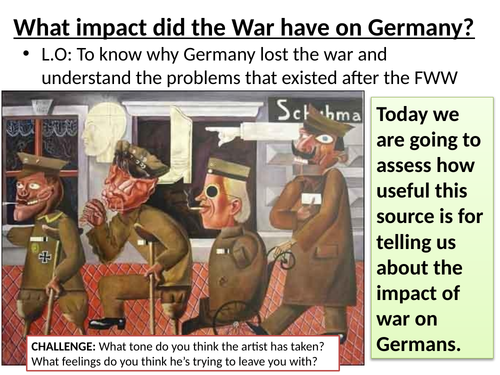
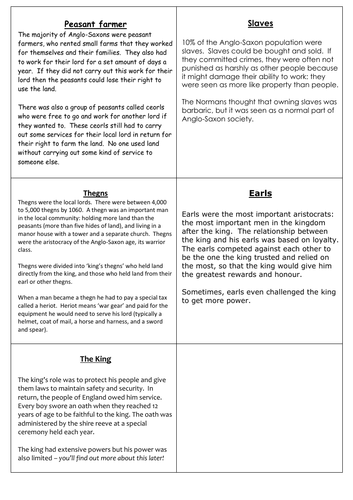
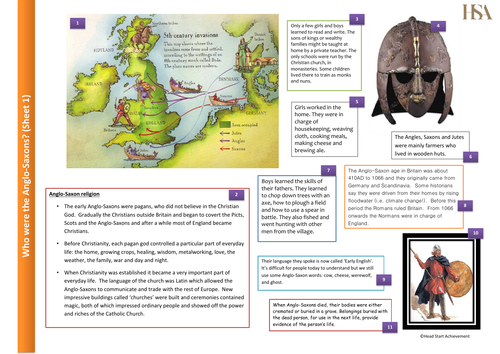
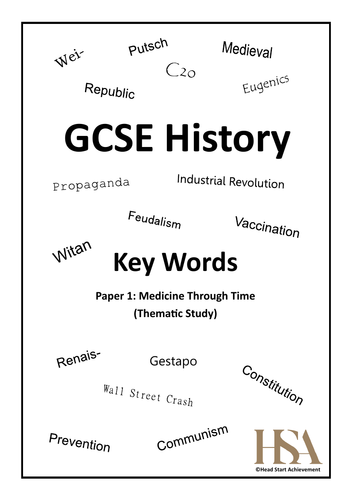


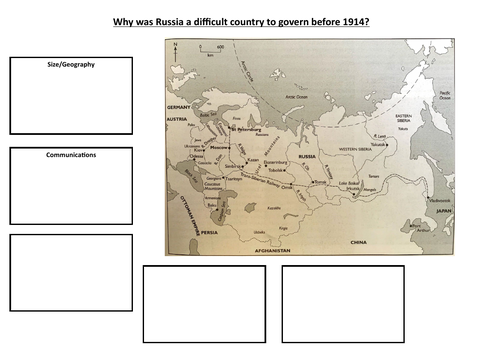
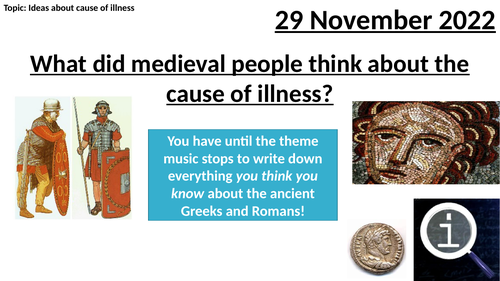
![Key Words for Medicine [FLV]](https://d1e4pidl3fu268.cloudfront.net/9f339aee-a1c5-458d-bf26-ec07fd2dd0dd/Picfront.crop_174x130_0,14.preview.png)
![Key Words for Germany [FLV]](https://d1e4pidl3fu268.cloudfront.net/4eb70280-1ff1-4dda-a08d-f6ab06a970cd/PicFront.crop_440x330_0,26.preview.png)
![Key Words for the Cold War [FLV]](https://d1e4pidl3fu268.cloudfront.net/80ad2881-6ec2-4439-8bc9-2ac7c66613b5/PicFront.crop_440x329_0,29.preview.png)
